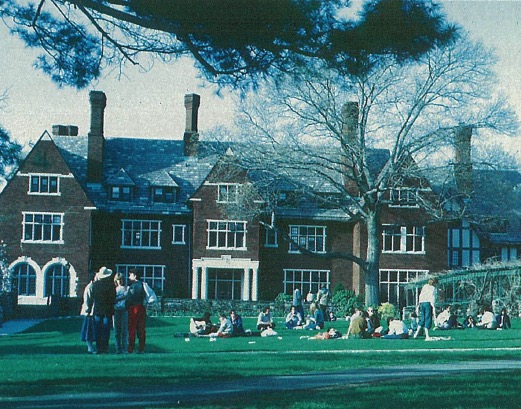By Maryellen La Bosco, New York
While vegetarianism is no longer an aberration in America, at Sarah Lawrence College in Bronxville, New York, it’s actually become the norm. Meatless meals have been offered for almost 25 years, and college officials estimate that currently 60 percent of its more than 1,300 students are vegetarian.
How did Sarah Lawrence find itself on the cutting edge of the US vegetarian movement? “Our students are incredibly aware of the new information coming out, and they were reading that it’s healthier to eat less meat,” answered Micheal Rengers, food service administrator. “The college tends to draw independent-minded students who know what they want and how to ask for it.”
Rengers himself has been a vegan, a vegetarian who eschews even dairy products, for six years. After kicking the smoking habit, he started to put on weight, and was encouraged by the fact that vegans he met were never overweight. He also figured that the best way to understand the students’ needs was to try their diet. “I felt terrific,” he said, “and they loved it.”
According to Ray Mulligan, whose company provides meals at Lawrence and nearby Bard College, “nightshade vegans” at Bard are now asking for food offerings without root vegetables, such as onions and potatoes.
Student Gregory Marin was originally motivated by environmental concerns when he eliminated meat from his diet three years ago. “I was reading about the inefficiency and waste of using meat over plant products. When I became a vegan, it was because of a growing concern for animals.” Marin now eschews wearing leather as well.
“I’ve been a vegetarian all my life, except for four years,” said Ivy Quinn, a graduate student. “I want to experience everything in life,” joked Quinn, in explaining her stint as a meat-eater. “I wanted to see what it was like on the other side, but it wasn’t any fun, and I didn’t feel good!”
While the depth of vegetarian culture at Sarah Lawrence (70 percent girls) may be unusual, it is indicative of a larger shift in attitudes toward food that has occurred in the last 25 years on American campuses. Recently, Duke University and the University of California at Berkeley began serving more vegetarian dishes in response to increasing student and faculty demands.


